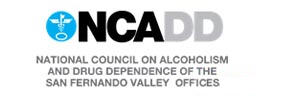Medication Assisted Treatment (MAT)
CLINICAL SERVICES
Medication Assisted Treatment (MAT)
What is Medication Assisted Treatment (MAT)?
We believe there is no single path to recovery, and we embrace the advances in medical research that have developed Medication Assisted Treatment as a tool for those needing additional support. Medication Assisted Treatment, often referred to as MAT, is the use of Addiction Medicine Physician-prescribed medications that are designed to act as anti-craving medications, in combination with counseling and behavioral therapies for the treatment of substance use disorders. MAT is not for everyone, but it can be a good option for people who have been unsuccessful in battling cravings on their own.
How Does it Work?
Addiction affects everyone differently, and no two person’s path to recovery is the same. We find that in some cases, medication can support a person’s recovery process. Our Medical Director, Dr. Dagmar Liepa, is an addiction medicine specialist physician and oversees the care of clients that are choosing this course for their recovery.
Whether you have gone through detox and are clean from all medications but experiencing high cravings, or have done MAT and would like to continue, you will be seen by the doctor who will prescribe one of several medication if the physician believes you are a candidate for medication maintenance.
Throughout the program, you will work on the high cravings in a safe place and manner, while working through your substance use disorder in group and individual sessions.
The duration of MAT can either be short-term, to allow you to gain some stability in your life while slowly reducing the dosage until you no longer need medications of this kind, or long-term, to avoid chronic relapse. Ultimately, you will be collaborating with the doctor to determine the duration of the medication.
What is it Important?
The days after someone detoxes from opioids, alcohol or benzodiazepines are the most dangerous. Tolerance has decreased, and many people who relapse in this window use the same amount they were using before, only to overdose and experience severe health issues or death.
Research has shown that MAT decreases the risk of relapsing significantly, prevents infectious diseases, and prevents overdoses effectively. Unfortunately, most treatment centers will not continue MAT after a patient finished detox or inpatient care.
Sobriety can be difficult for those who have become exhausted from falling or relapsing repeatedly. NCADD-SFV embraces the use of MAT as an effective means of giving you support and allowing you to experience a clean and sober life while gaining the confidence to succeed in sustaining long-term sobriety.

